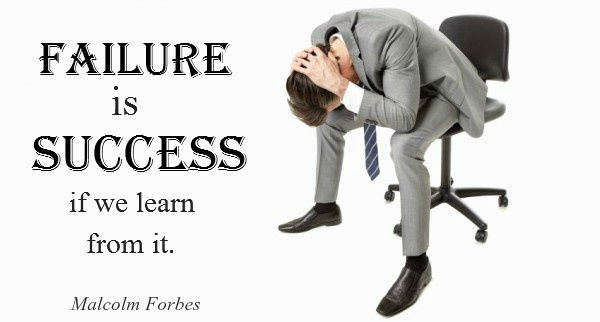
“Failure is Not an Option”…Yes it is. It just isn’t the one we want.
As entrepreneurs, there is significant pressure from the start-up and venture community to ensure a meteoric rise for our venture’s success. So we tell ourselves words that are meant to encourage, but are actually detrimental. I can think of none more egregious than, “Failure is Not an Option.”
I can’t tell you how often I’ve heard this one from fellow entrepreneurs. Hell, I know I’ve thought it and probably even said it out loud to myself many times. It is one of the many misguided myths/statements meant to inspire, but actually sets us up for the very failure we are pretending isn’t an option. Not only is failure an option, but in business, it is the statistically most likely outcome. So much of whether a venture is successful is completely out of our control. The most we can do is understand and optimize what is within our control and prepare for and be flexible to that which is out of our control. Pretending failure isn’t out there actually thwarts our chances for success, because it means we aren’t prepared.
Be Prepared for Failure
If we are really going to be prepared in our business ventures, then we MUST prepare for business failure. While we certainly don’t want to choose this outcome, it is statistically THE MOST LIKELY. And if we haven’t prepared for it, how can we recognize it coming? And if we are prepared, we will not only recognize it coming, but we will have the choice of a soft landing rather than a complete crash and burn.
Here’s the real conundrum: if we build a business and it financially fails, does that mean WE failed? I’ve struggled with this for well over a decade, and in that time, I’ve discovered, that if the financial success of your business is tied to personal success, then we’ve almost certainly set ourselves up for personal failure.
The Bright Side of Failure
There is a bright side. Out of business ‘failure’ comes the most profound learning. For those entrepreneurs who hit a homerun right out of the box, generally, the only difference between that person and the one that came up to the plate and struck out is ‘luck’. “Luck” that one or many circumstances that are out of anyone’s control fell that person’s way at that given time. The key difference is that the one who failed will find profound and greatly humbling learning that will serve him or her very well moving forward. The one that hit the lucky homerun may actually think it had more to do with them having gotten it ‘right.’ The believed successful one misses out on many reflective opportunities and will have an ego that won’t be so easily checked at the door for the next opportunity. A great irony is that no one gets more investment money tossed at him or her then the person who just hit the homerun. Yet statistics will tell us the odds of that hitter doing it again their next time at bat are very low. The smarter money is actually best placed with the person that recently struck out swinging. I have gotten my best hires and company leaders from resumes that demonstrated a person who stepped up to the plate and went down swinging a few times. These folks tend to be smarter, more practical, and infinitely more valuable (on many levels) than someone who’s hit a couple of doubles or even a home run on their first time at bat.
Failure Isn’t the Same as Quitting, and Quitting Doesn’t Necessarily Mean You’ve Failed
I think many people confuse ‘failure’ with ‘quitting’. There is definitely a significantly addictive nature to Entrepreneurship. And in the discussion of addiction, ‘quitting’ genuinely signifies a victory. Isn’t it lauded when someone quits a destructive addiction? We are all so proud if someone quits smoking or drinking. America loves to cheer for their favorite star who has ‘so courageously overcome’ an addiction to sex or drugs. Did we judge them as failures for having fallen victim to the addiction in the first place? Does having ‘quit’ erase that initial failure? Does the scale just get zeroed out so we can start fresh?
Can ‘quitting’ on an entrepreneurial venture actually be a ‘successful’ decision? It is often the smart business decision to recognize when the game is over and everyone has gone home so we don’t throw good money after bad. And if we’ve left it all out on the field then how could we call it a failure? If we really believed failure is not an option, then we will fail most severely by throwing good money after bad.
Starting, building and running a company is so much more challenging, often in obtuse ways, than anyone can ever honestly prepare you for. The road from having an inspired idea to realizing financial success from that opportunity is so much longer and circuitous than we intend or can envision. It is exhausting, exhilarating and exasperating all at the same time. You can do everything right, even in hindsight, and a venture can still fail. So while we wouldn’t choose failure as the outcome we want for our ventures, I urge all entrepreneurs out there to accept that failure isn’t the enemy, we are by pretending it doesn’t exist. Don’t fear failure. Prepare for failure. If we have the courage to learn from failure, we will be best poised to achieve long-term success.
First published: http://www.womensprospects.com/failure-not-option-yes-just-isnt-one-want/